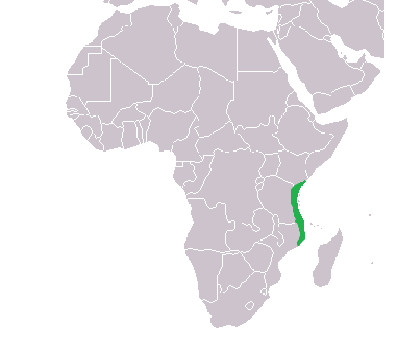A zooarchaeologist from Rice University visited NC State Friday to kick off a series of talks about race, culture and politics, which was held by the Department of Sociology and Anthropology.
Eréndira Quintana Morales received her undergraduate degree in anthropology from Washington University in Saint Louis and a Ph.D. in archaeology from the University of Bristol in England. During her talk, she spoke about her recent studies on fishing practices in the Indian Ocean, particularly on the Swahili Coast of Eastern Africa.
John Millhauser, an anthropology professor, opened the meeting explaining the connection between zooarchaeology and anthropology, shedding light on the work of Morales.
“She studies the remains of animals, but in the context of human cultures and past human societies specializing in the subfield of marine zooarchaeology,” Millhauser said.
Morales said for the communities living on the Swahili Coast, fish was and still is one of the main resources. It is involved in a variety of activities where humans interact socially, hence it is valuable for societies, beyond its economic and nutritional values.
To conduct her study, Morales said she analyzed and studied bone remains from more than 20 sites, with the help of the National Museums of Kenya and the National Museum of Natural History in Paris. To understand more about the consumption habits and how they evolved, she also engaged with the communities in the Swahili Coast. From her fieldwork, Morales said she was able to see hands on the various social interactions related to fish and gain an understanding of how the history of the region was shaped.
Morales first explained that fish were an abundant cultural resource and a key factor in the development of the first settlements. She discovered a wide range of fish were exploited. However, they were not equally distributed, and a link can be drawn between the type of fish consumed and social status. Fish was a social tool and is still reflected in today’s practices.
Morales underlined the importance of sharing food in those communities. Eating, serving and cooking food expresses different social dynamics. However, these results are still limited by data. Even though Morales had access to more than 35,000 fish remains, it is not enough to draw a clear portrait of how fish were related to human societies. She said she has future plans to continue her studies on the Swahili Coast and is returning this summer to do some more analysis and excavating.
When asked why she decided to specialize in such a complex field such as zooarchaeology, Morales said she enjoys the challenges the field brings.
“I like how diverse and challenging it is, it makes it fun,” Morales said. “It is like solving a mystery every time that you have a bone, you try wondering what it could be and imagining the whole world that it represents.”
Morales said how much she enjoyed sharing work with others in hopes to inspire students and professors to find interest in research.
“That is something actually that I really enjoy in this type of work, the many different types of things that I get to do from being out in the middle of the ocean and fishing, and cooking and talking to people, but also working in a lab and looking at all of these little fish bones and also coming to talk about it to people,” Morales said.
Millhauser said Morales inspires others to ask questions and learn about research.
“It is exciting to get someone to come in and talk about something they are passionate about, and something they are an expert in,” Millhauser said.
The talks challenge professors to go outside of their comfort zones and networks as they strive to bring a fresh perspective to students, according to Millhauser.
Nora Haenn, professor of anthropology and international studies at NC State, described the importance of diversity in universities.
“The cross-fertilization of ideas is what universities are all about,” Haenn said. “If we don’t have a cross-fertilization of ideas, then we are not growing, we are not changing.”
It is from this diversity that both students and professors are challenged, gaining a new way of approaching an idea, according to Haenn. In the end, both professors and speakers are looking to encourage and inspire students to open their minds and look at the world from different viewpoints.








